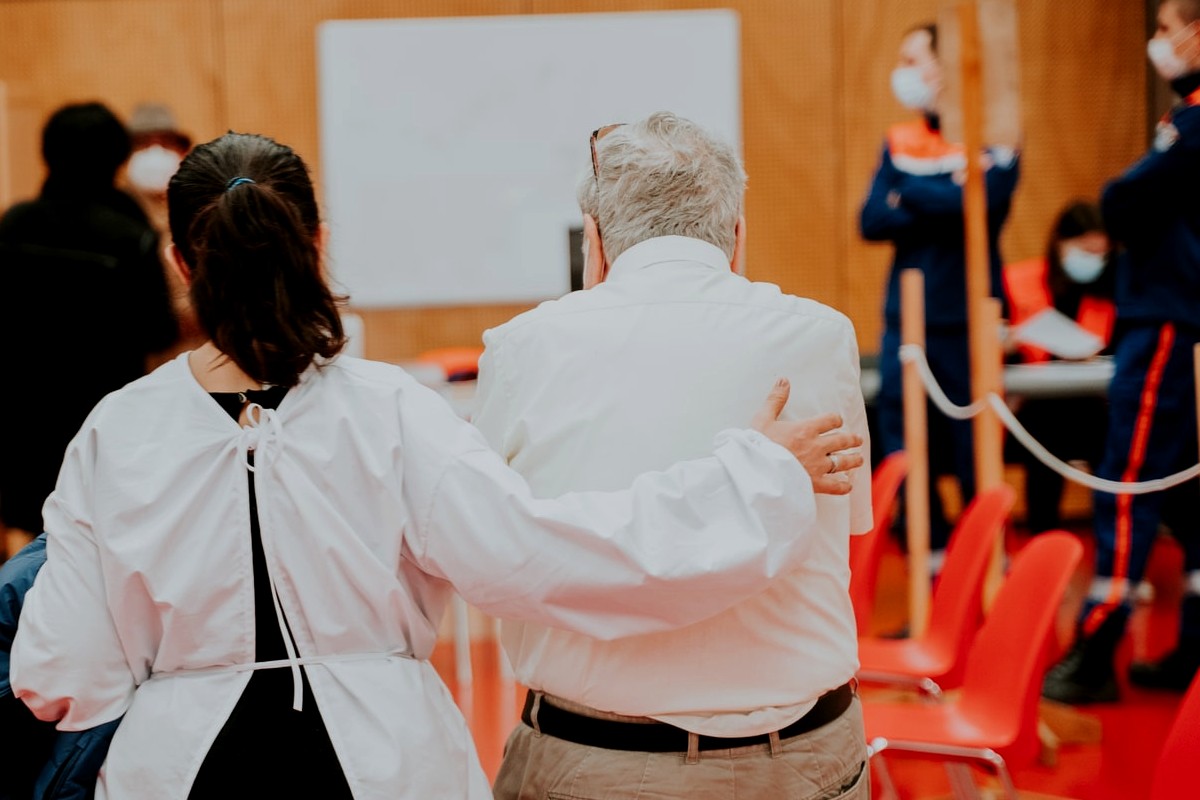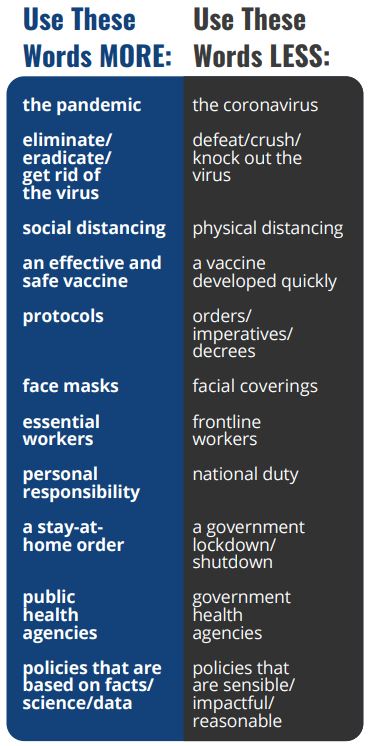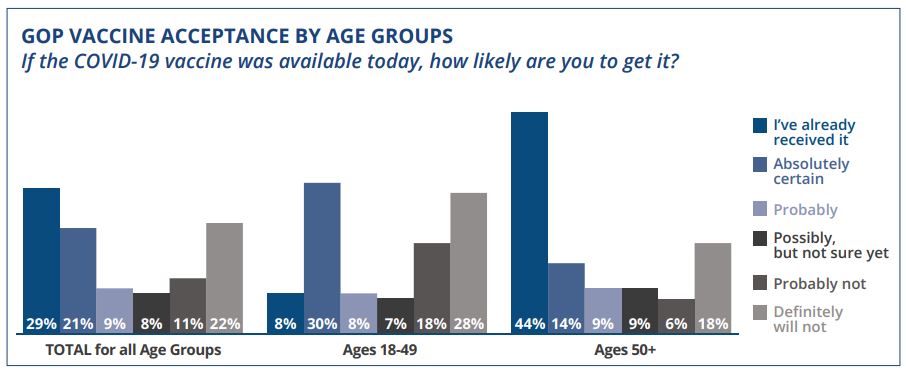
By Andy Brack, editor and publisher | A national study highlights tested ways to communicate effectively with groups of Americans who tend to be more hesitant to be vaccinated against COVID-19 — younger women, younger African Americans, rural residents and younger Republicans.
“The divides along racial, urban-rural, political and generational lines are significant when it comes to vaccine acceptance, but we’ve learned that there are certain words and phrases that will work for all audiences,” said pollster Frank Luntz about his study for the de Beaumont Foundation. In the 1990s, Luntz served as a pollster for House Speaker Newt Gingrich to rebrand Republicans via messaging. His work was used with Gingrich’s Contract with America and, many have observed, helped to increase polarization in American politics.
Luntz’s new work with the foundation illustrates how the use of language can help improve vaccine acceptance. For example, leaders should talk about the benefits of taking the vaccine, versus the consequences. Or how getting the vaccine keeps people safe, versus “getting the vaccine is the right thing to do.” It also suggests talking about “America’s leading experts” as opposed to “the world’s leading experts.”
The poll also found that appealing to family was a powerful vaccine motivator.
“Significantly more Americans said they’d be most willing to take the vaccine for their family as opposed to ‘your country,’ ‘the economy,’ ‘your community’ or ‘your friends.’”
 Best reasons to get the vaccine, according to poll
Best reasons to get the vaccine, according to poll
The poll suggested the three most convincing reasons to get the vaccine were:
- Effectiveness: “At 95 percent efficacy, this vaccine is extraordinarily effective at protecting you from the virus.”
- Ending the pandemic: “Vaccines will help bring this pandemic to an end.”
- Safety. “Getting vaccinated will help keep you, your family, your community and your country healthy and safe.”
Looking at four undervaccinated groups
As of this week, data show more than 360 million doses of the COVID-19 vaccine have been administered in the U.S. with 170 million Americans (51.7 percent) being fully vaccinated.
In South Carolina, like other red Southern states, the vaccination rate is lower. As of Aug. 17, 46.1 percent of eligible South Carolina residents 12 and older (1,979,845 people) have been fully vaccinated. Another 363,000 residents have had one dose, according to the S.C. Department of Health and Environmental Control.
According to Luntz’s research, done between December and March, four groups are among the most hesitant to get vaccinated. Different messages appear to work to reduce each group’s hesitancy.
Republicans, ages 18-49. Republican voters in this category have a top priority of returning to normal. Safety-related messaging doesn’t work as well, the poll said. Interestingly, these voters said they would be more likely to get vaccinated if their doctor endorsed it.
“When asked if they’d be more likely to get vaccinated if their doctor or Trump recommended it, 81 percent chose their doctor,” according to Luntz’s research. “This and other findings reveal that like other Americans, Trump voters see vaccination as a personal issue, not a political issue, and they want unbiased facts from doctors and other trusted, nonpolitical sources.

Black Americans, ages 18-49. More than 40 percent of respondents said they were worried about unknown or potential short- or long-term effects from the vaccine. Messaging about safety and benefits of vaccines seemed to be more persuasive, according to results.
Women, ages 18-49. These respondents, most of whom are of child-bearing age, were most worried about “damage from lockdowns” and the “potential for family/friends to become ill.” Keys to breaking hesitancy among them are to stress language that highlighted the importance of the vaccine addressing both issues, according to the poll.
Rural residents. Almost two in five rural residents have little confidence in the safety of vaccinations, suggesting that messages highlighting how vaccines can keep families safe may help reduce hesitancy.
“Words can save lives,” said Brian C. Castrucci, president and CEO of the de Beaumont Foundation. “Our ability to boost confidence in COVID-19 vaccines will depend largely on the language, the messengers and methods we use to communicate to Americans that the vaccine will help keep them and their families safe and healthy.”
- Have a comment? Send to feedback@statehousereport.com


